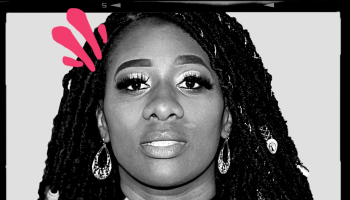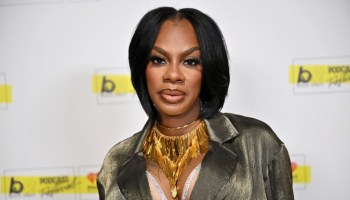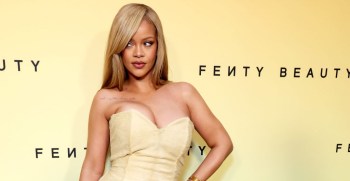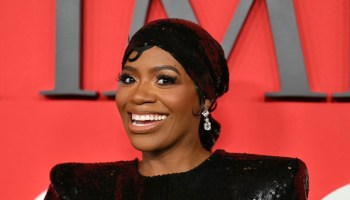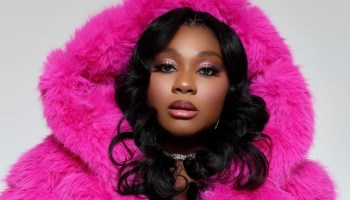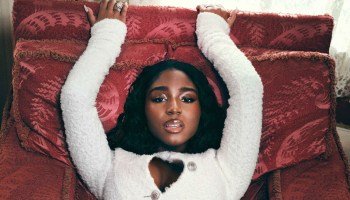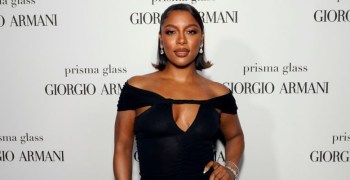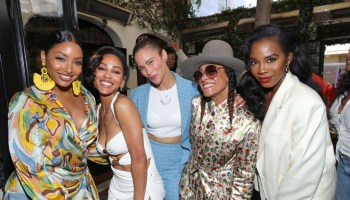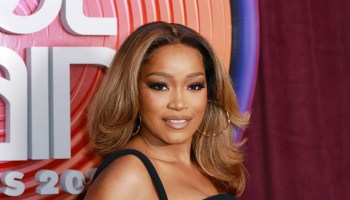With all the conversation that you’re having with your girlfriends, who’s having the conversation about your health?
There are countless blogs about Black women’s hair–what’s your curl pattern? What protective styles can you wear? How often should you wash? Is co-washing better? The natural hair conversation has taken off to dimensions my unborn grandchild will only understand.
Must Read: The Best In Beauty Box Subscriptions
We talk about the latest diet trend, but why aren’t we talking about how our diets will keep us from growing grapefruit sized fibroids? How often do you check in with your girlfriend’s routine breast exams? Have you ever discussed getting a pelvic ultrasound over brunch?
I promise this is my last set of questions. Are you talking to your girlfriends about how often you and your boo get checked for STD’s or if they’ve ever contracted an STI or STD? What about the steps they took to get rid of it?
Black women are at risk for the most health issues, specifically issues with our reproductive health. I think it’s high time we begin to put our big girl panties on and just go there. In the words of poet and Black feminist, Audre Lorde, preserving our body is a “matter of political warfare.” Black hair blogs are just the beginning of truly learning ourselves, regaining control of our fate and changing the legacy Black women leave in the world.
Our story of health is an important one. It is pertinent and actually vital to society. May I plug another Black shero? Author, scholar and 19th century women’s activist, Anna Julia Cooper made a bold declaration that only Black woman can say, “When and where I enter…there the whole Negro race enters with me.”
To think that as a Black woman, upon my entrance into wherever I go, I usher in the entire Black race. If I thought of my body as the source of mankind how different would I treat her? How would I treasure her, care for her, build her up, strengthen her and be kind to her? Carrying the Black race is a huge feat. She (our bodies) must be prepared.
Now I am preparing as I have reached the age that I am seriously considering my future plans. I am several years out of college, well into my career and have begun to considering marriage, starting a family and buying a home. When contemplating these life-changing goals–my biological clock tick, tick, ticks away. Can I find a man and accomplish my career aspirations before having children? Between the challenges of my career journey and my complicated relationship and genetic history (I.e. my mother’s ability and/or challenges having children) I am unsure how likely it is for me to accomplish all of my goals.
Must Read: 25 Women To Know: Champions For Youth
I have a complicated sexual history due to complicated relationships, and the past risky sexual behaviors I’ve engaged in could lead to serious reproductive issues or put me at a greater risk of contracting STI’s and STD’s in the future. Also, women in my maternal family have all had cysts and fibroids that led to hysterectomies between ages 40 and 50-years-old, also leaving me at risk for those conditions. AND, if am able to beat these odds I have to also consider balancing my career-work life and my family life. Not to mention bare the cost of maternity leave and daycare.
Reflecting on all of the issues many women have to deal with, I am left anxious, stressed, and a little depressed about it all–cue Haagen-Dazs and cupcakes–how the hell am I suppose to do it all?! Maybe this is why we’re not talking about our health— it goes deep, and we have way too much going on to go there! I have realized that it is up to me to make my health a top priority in the same way that I do for my job. I have to take my health as seriously as I do my career, my finances and my life goals, because they are all inevitably connected.
I also cannot figure this out on my own. We have to start these conversations with someone other than our self…or at least pick up where many other Black women have left off and research the hell out of what we don’t know. First things first, what are we up against?
According to the Government’s Office of Women’s Health, there are over 20 high-risk health conditions most common in African-American women. Included in this list are HIV/AIDS, Breast Cancer, STI’s, Uterine Fibroids, Lupus, mental health problems and suicide. The key causes of many of these conditions are unknown, however we are listed as most at risk because of these major factors:
- Lack of health care: Black women are less likely to have health care than any other demographic, and if we do have health care, we are less likely to catch the care we need in time.
- Cultural stigma and the history of American racism have led to a lack of trust (amongst other things) in the medical system: African Americans bodies have historically been disregarded and not granted access to the health care system, however taken advantage of by way of studies and research. Through Jim Crow black people could not access most hospitals and if they did, were forced to wait two and sometimes three times as long for care. The Tuskegee Syphilis Experiment is another historical reference for the America’s historical disregard for the health and the future health of Black Americans.
- Lack of knowledge about tests that screen for the health problems that we are most at risk for: For example, a transabdominal ultrasound looks for uterine fibroids or other problems and is not usually suggested unless severe pain or discomfort is mentioned. Black women are three times more likely to get uterine fibroids. If we are at risk for this we should make sure to get checked out.
- Family history: Some diseases are genetic. Learn the best you can about your family’s health history. This will give you a chance to know what tests you should be taking and what you should alert your doctor to keep a close watch on.
Based on the laundry list of health problems that Black women are most at risk for, we should visit the doctor at least two times a year. Go get some of that Obamacare ladies! We should also find a doctor that we can trust.
Check out the websites below for great doctor listings that will help you find a doctor that meets all of your needs. Don’t be afraid to interview your doctor (by way of consultation) before scheduling an appointment, and if you are not satisfied with their care, don’t go back!
There is nothing better than a good recommendation from a friend, so ask around.
Visit your healthcare provider’s website:
- https://www.empireblue.com/health-insurance/home/overview
- http://www.aetna.com/dse/search?site_id=docfind&langpref=en&tabKey=tab1
- http://www.uhc.com/find_a_physician.htm
Additional sites:
Based on your genetic history, body weight, age and sexual history, you should know what you are most at risk for. Check out this site for the risks, symptoms and treatment associated with each health condition affecting Black women at alarming rates.
Lastly, talk about it! Ask your grandma, your mama, your aunty, cousins and don’t forget your girls! Find out what their health conditions are and have been. Specifically, ask them about their reproductive health. It may be an awkward and a very difficult conversation, but I guarantee that you will be surprised at what you learn about yourself!
For more information about Black women’s reproductive health, visit Black Women’s Health Imperative. They started this conversation in 1983 and can direct you to a wealth of information:
- http://www.blackwomenshealth.org/
- http://www.blackwomenshealth.org/elevate/elevate-the-conversation/
- http://asoft10123.accrisoft.com/blackwmnshlth/moving-beyond-pink/mbphome/
One last thing. Pick up the book, “Health First!: A Guide to Black Women’s Wellness.” This is a project by Black Women’s Health Imperative. Read stories about Black women of all ages, regarding their reproductive health and wellness. Now go forth and change the conversations that Black women are having. We can keep talking about your curl patterns and protective styles, but we should always keep an open conversation about our sexual health going. Our lives and our future generations lives depend on it.
Related Stories:
FDA Makes Cheaper Morning-After Pills Available To All Women
New Study Claims Women Don’t Know Nothing About Birthing No Babies!
Check Out This Gallery Of Unhealthy Foods That Are Actually Good For You:
